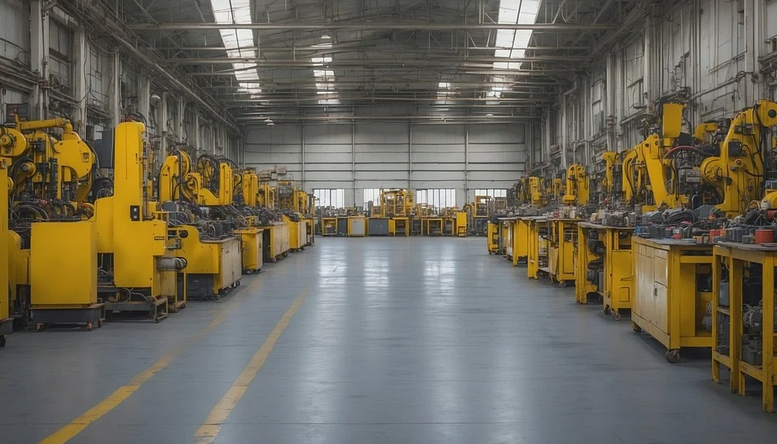The Need for Change: Outdated Metering Systems
Detroit’s history with electric utility meters is as rich and complex as its cultural tapestry. For decades, these tiny but crucial devices have measured energy consumption, providing power to homes and businesses throughout the city. But times are changing, and like the city itself, its metering system needs a refreshing update to keep pace with modern advancements in technology and sustainability. The current generation of meters, while reliable, faces several limitations that hinder their effectiveness and limit Detroit’s ability to efficiently manage its energy infrastructure.
One of the most significant issues is the lack of real-time data accuracy. Traditional meters often rely on manual readings taken at set intervals, which means inaccurate measurements and delayed insights into energy usage patterns. These inaccuracies lead to higher expenses for consumers as they may be paying for more electricity than actually consumed.
Another major drawback is a lack of remote access and control mechanisms. Managing utility bills and troubleshooting issues require inconvenient trips to the meter box, often creating delays and inconveniences for residents. Imagine having the ability to check your energy usage during a snowstorm from the comfort of your couch! With modern meters, this is now possible.
Furthermore, traditional meters struggle to adapt to the rising demand for smart city solutions. Detroit’s ambitious plans for sustainable development and urban resilience rely on real-time data integration across various platforms for effective resource management, traffic optimization, and even public safety initiatives. However, current meter systems are often disconnected from these broader networks.
The need for a change is clear. We must move towards a smarter solution that enhances sustainability, promotes user convenience, and lays the foundation for future technological advancements in Detroit’s energy sector. This transition presents a unique opportunity to reimagine how we interact with electricity.
The Rise of IoT: Integrating Smart Meter Technology
Enter the world of Internet of Things (IoT) and smart meters. With their ability to connect directly to the internet, these modern devices bring about a wave of positive changes. Imagine a scenario where your energy meter sends real-time readings directly to your phone, allowing you to monitor your usage with unprecedented clarity.
These sophisticated meters contain embedded sensors that track consumption, even measuring small fluctuations in electrical currents. This data empowers users to understand their energy habits and make informed decisions regarding their energy consumption. Smart meters can also detect unusual spikes in usage, alerting homeowners or businesses of potential problems like equipment failures or faulty wiring.
Beyond individual households, the benefits of smart meters extend to communities at large. The ability to monitor grid performance allows utility companies to identify areas with high demand and optimize energy distribution for maximum efficiency. This ensures that power is delivered efficiently to all residents, minimizing energy losses and wasted resources.
Furthermore, smart meters play a crucial role in facilitating the shift to renewable energy sources. By receiving real-time data from smart grids, utility companies can better integrate solar panels or wind turbines into the grid and optimize their performance for maximum efficiency.
These advancements go beyond individual users’ benefits; they hold the potential to reshape Detroit’s energy landscape. Smart meters empower residents and businesses with control over their consumption, promote cleaner energy solutions, and pave the way for a more sustainable future.
The Path Forward: Collaboration and Innovation
So, how can Detroit achieve its ambitious goals of implementing efficient smart-meter systems? It all begins with collaboration. Engaging residents, utility companies, government officials, and tech experts is critical to unlock the full potential of these advancements. This shared initiative ensures that developments align seamlessly with community needs and ethical considerations.
Detroit’s spirit of innovation will play a vital role in driving these transitions. By fostering a culture of experimentation and pushing boundaries, the city can establish itself as a leader in smart-meter technology. Encouraging local entrepreneurs to develop innovative solutions will further accelerate progress.
Investing in public awareness campaigns will be equally crucial. Educating residents about the benefits of smart meters, empowering them with knowledge, and fostering trust are essential components for successful implementation. This ensures that smart metering technology is embraced by the community and integrated into their daily lives.
Detroit’s legacy as a city defined by resilience and innovation shines brightly in its commitment to sustainable energy practices. These efforts will not only improve the efficiency of its power supply but also position Detroit at the forefront of the smart cities revolution, leaving an inspiring mark on generations to come.
The future of energy management in Detroit is bright. Smart metering technology can be a catalyst for positive change, shaping a more sustainable, efficient, and vibrant city. The key lies in embracing this shift, building collaborative partnerships, and fostering a culture of innovation. Together, we can harness the power of smart meters to create a more prosperous and environmentally conscious future for Detroit.
